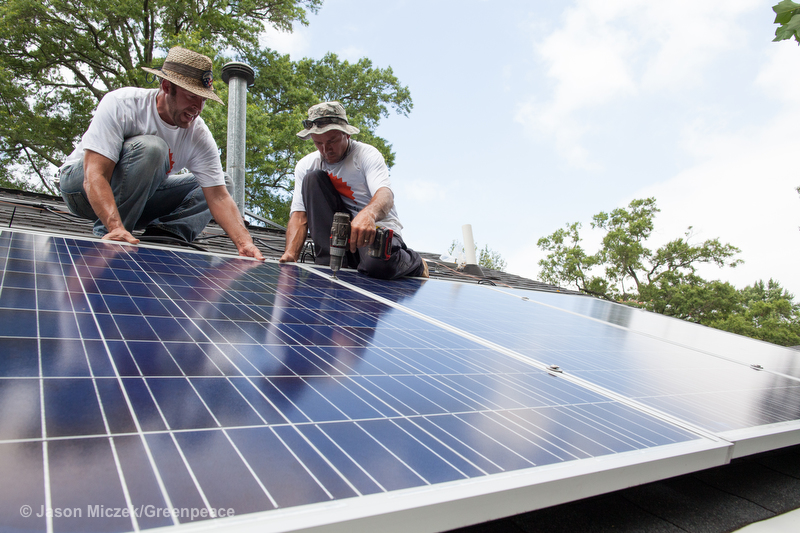Are you looking to reduce your energy bills and make your home more sustainable? Hybrid solar panel technology is revolutionizing the way we power our homes. By combining both traditional solar panels with new battery storage systems, hybrid solar panel technology can provide a major boost in cost savings, environmental impact, and convenience.
In this article, we’ll discuss how hybrid solar panel technology works and explore its many benefits for homeowners.
- How Hybrid Solar Panels Work
- Advantages of Using Hybrid Solar Panels
- Comparing Various Types of Hybrid Solar Panels
- Cost Considerations for Installing a Hybrid System
- Maintenance and Repairs for Your Hybrid Panel System
- Choosing the Right Location For Your Installation
- Conclusion: Final Thoughts on Hybrid Solar Panels
How Hybrid Solar Panels Work
Hybrid solar panels work by combining the traditional photovoltaic cells with a thermal panel to harness both heat and light energy from the sun. By doing this, hybrid solar panels are able to generate electricity more efficiently as compared to regular photovoltaic cells.
This is because they capture more of the sun’s energy and convert it into usable power that can be used in homes or businesses.
Advantages of Using Hybrid Solar Panels
Hybrid solar panels offer many advantages over traditional photovoltaic (PV) panels. They are much more efficient, produce greater power output, and require less maintenance than conventional systems.
Hybrid solar cells also have a higher tolerance for extreme weather conditions due to their design that allows them to adjust their angle of inclination in response to the sun’s position throughout the day.
Additionally, they are designed with integrated energy storage so you can store excess power during peak production times and use it later on when needed!
Comparing Various Types of Hybrid Solar Panels
When it comes to hybrid solar panels, there are a variety of options available. A comparison table can be helpful when deciding which type is best for your needs.
Factors to consider include the cost-per-watt, efficiency rating, temperature coefficient, power tolerance and warranty period.
Researching each option thoroughly before making a purchase is essential in order to make an informed decision about the right hybrid solar panel for you!
Below you can see a table comparing two main types of hybrid solar panels with their advantages and disadvantages:
| Type of Hybrid Solar Panel | Description | Advantages | Disadvantages |
|---|---|---|---|
| Hybrid Solar Panel with Battery | A hybrid solar panel with a battery is a solar panel system that is connected to a battery storage system. The solar panel charges the battery during the day, and the battery stores the excess energy for use at night or during periods of low solar radiation. |
– Allows for the storage of excess solar energy – Can be used during periods of low solar radiation or at night – Can be used as a backup power source |
– Requires additional equipment (battery storage system) – Can be more expensive to install – May have a shorter lifespan than traditional solar panels – May require more maintenance |
| Hybrid Solar Panel with Fuel Cell | A hybrid solar panel with a fuel cell is a solar panel system that is connected to a fuel cell system. The solar panel charges the fuel cell during the day, and the fuel cell stores the excess energy as hydrogen gas. The hydrogen gas can be used to generate electricity when needed. |
– Allows for the storage of excess solar energy – Can be used during periods of low solar radiation or at night |
Cost Considerations for Installing a Hybrid System
Installing a hybrid system can be an expensive investment, depending on the type of system you purchase. Initial costs may include not just the actual equipment, but also installation labor and permits.
It is important to factor in potential long-term savings from lower energy bills when making your decision about whether or not to install a hybrid system.
Maintenance and Repairs for Your Hybrid Panel System
Maintaining and repairing your hybrid panel system is essential to keeping it running smoothly. First, make sure you have the right tools on hand for any necessary repairs – a voltmeter, crescent wrenches, wire cutters etc.
Additionally, every six months check up on all electrical connections and inspect for signs of corrosion or wear-and-tear. Finally, regularly clean your panels with an appropriate cleaner to ensure optimal performance!
Choosing the Right Location For Your Installation
Choosing the right location for your installation is key for its success. There are several factors to consider such as accessibility, cost of operation, security, and the availability of resources like power and internet connection before making a final decision.
It’s also important to research local laws and regulations that may affect the installation process. Taking all these into account will help ensure your project runs smoothly and successfully!
Conclusion: Final Thoughts on Hybrid Solar Panels
Hybrid solar panels represent an innovative and cost-effective way to generate electricity. Although they are more expensive to install than regular photovoltaic (PV) systems, hybrid systems offer the potential for greater energy savings in the long run.
Moreover, hybrid systems can be used with existing grid infrastructure and require less maintenance over time. With its unique advantages, investing in a hybrid solar system could just be the best decision you make today!
If you found this article insightful, you should absolutely check out other articles on how you can use the solar energy effectively for various purposes (homes, vehicles, etc.).
